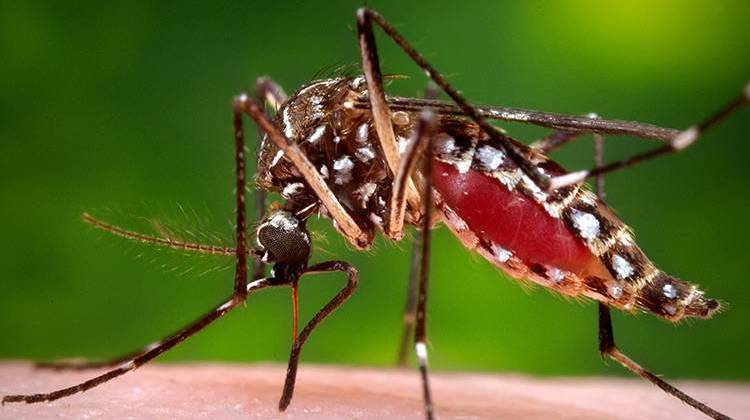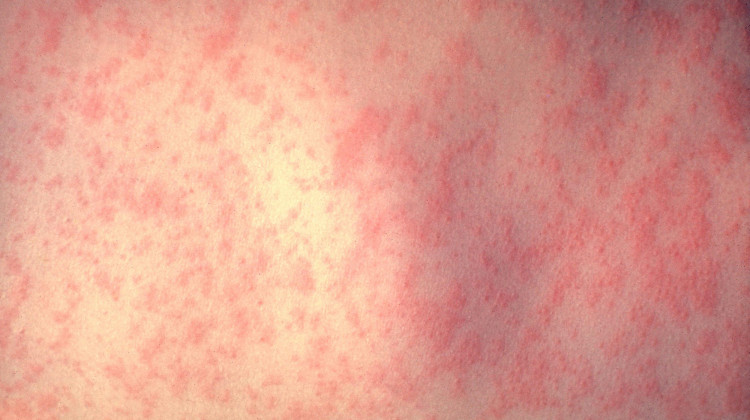
FILE - This 2006 file photo provided by the Centers for Disease Control and Prevention shows a female Aedes aegypti mosquito in the process of acquiring a blood meal from a human host. The Aedes aegypti mosquito is behind the large outbreaks of Zika virus in Latin America and the Caribbean.
James Gathany/Centers for Disease Control and Prevention via AP, FileINDIANAPOLIS -- Two summers ago, seven Hoosiers contracted the chikungunya virus while traveling in Caribbean. Now, some experts are pointing to the viral infection as another concern ahead of the Rio Olympics.
Chikungunya can be confused with Zika because many of the symptoms are the same. But there is one difference, says Max Jacobo Moreno assistant professor of Environmental Health Science at IUPUI’s Fairbanks School of Public Health.
"So, even though the person has already passed the stage of the rash and the fever and headaches, it comes back after a couple of months with a huge pain in the joints," Moreno says.
Dengue is another virus that could threaten travelers this month. Since there are no available vaccines or treatment for these viruses, health experts say prevention is key and advise wearing long sleeves, pants and repellent.
Moreno says socio-economic conditions, like no running water, increase the prevelance of mosquitos because people store water in containers for household purposes.
"Laundry, drinking water, those reservoir waters, those reserved waters are a perfect breeding sites for the mosquitos," Moreno explains.
These viruses are not usually fatal, and Zika is the only one associated with the birth defect microcephaly.
Rio officials also report as the weather gets cooler the number of cases have dropped.
 DONATE
DONATE








 View More Programs
View More Programs


 Support WFYI. We can't do it without you.
Support WFYI. We can't do it without you.